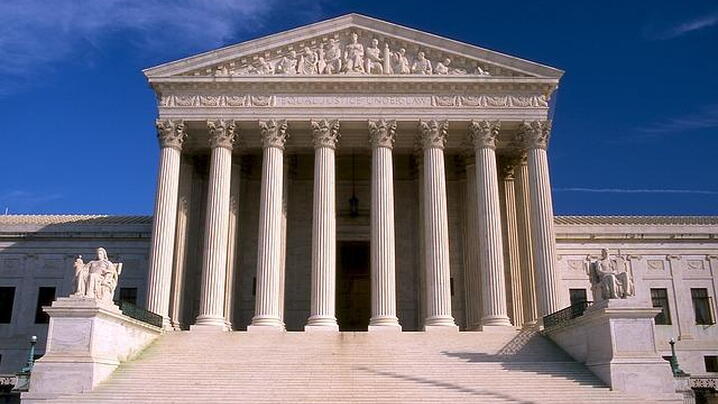
by Lisa Soronen, executive director, State and Local Legal Center
The Prison Litigation Reform Act (PLRA) states that when a prisoner wins a civil rights case “a portion of the judgment (not to exceed 25 percent) shall be applied to satisfy” his or her attorney’s fees award.
In Murphy v. Smith, the Supreme Court ruled 5-4 that this statute means “the court must pay the attorney’s entire fee award from the [prisoner’s] judgment until it reaches the 25 percent cap and only then turn to the [prison guards].” In other words, the court may not exercise its discretion and take any amount it wishes from the prisoner’s judgment to pay the attorney “from 25 percent down to a penny.”
A jury awarded inmate Charles Murphy some $300,000 in damages relating to an officer crushing his eye socket and leaving him unconscious in a cell without checking his condition. The trial judge awarded Murphy’s attorney some $100,000 in fees and allocated 10 percent of Murphy’s damages award to attorney’s fees (close to $30,000).
The prison guards argue that the PLRA requires that 25 percent of the judgment in favor of Murphy (or about $75,000) be allocated to Murphy’s attorney’s fees.
The Supreme Court agreed with the prison guards in an opinion written by Justice Gorsuch. The Court focused on the “to satisfy” language in the statute. “[W]e know that when you purposefully seek or aim ‘to satisfy’ an obligation, especially a financial obligation, that usually means you intend to discharge the obligation in full.”
The Supreme Court’s interpretation is favorable to states and local governments who may cover the balance of inmates’ attorney’s fees in these cases.
New, Reduced Membership Dues
A new, reduced dues rate is available for CAOs/ACAOs, along with additional discounts for those in smaller communities, has been implemented. Learn more and be sure to join or renew today!
